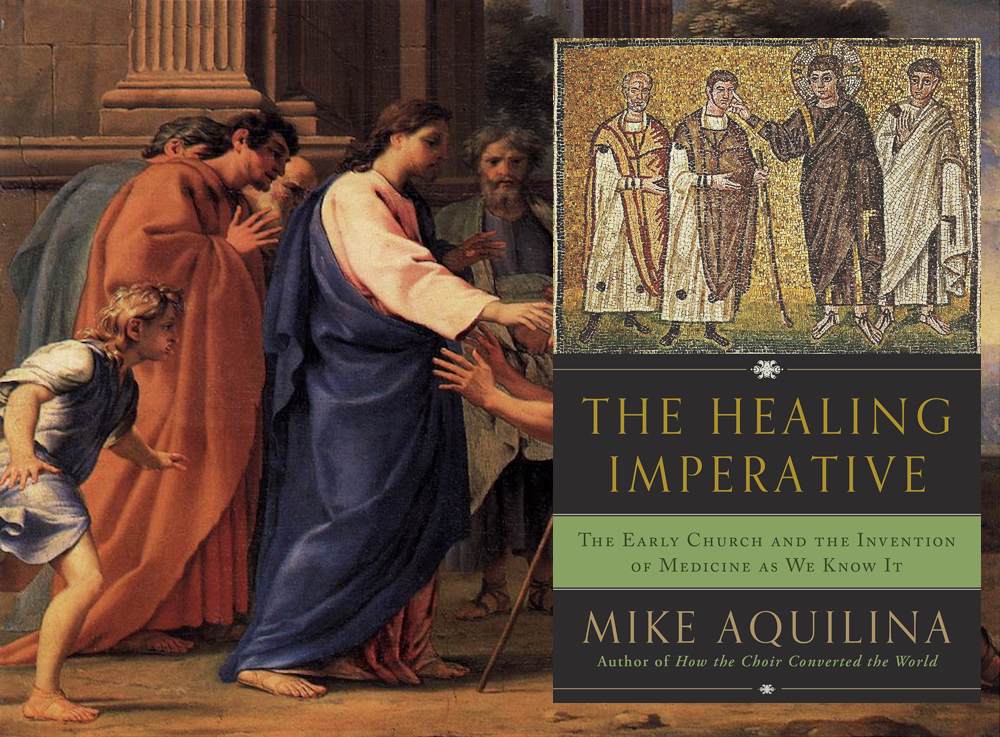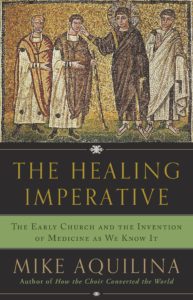[featured-image single_newwindow=”false”]
The practice of medicine in today’s world is sadly much more of a business than a means of helping people. Insurance companies only add to the confusion and the essential purpose of medicine is often left behind.
All of this is a far cry from the original doctors who are responsible for the organized health care we see today. Mike Aquilina delivers a fascinating and engaging look at the early practice of medicine in his book The Healing Imperative: The Early Church and the Invention of Medicine as We Know It.
Here is the book description from the publisher:
“Whenever you enter a town and they receive you, eat what is set before you; heal the sick in it and say to them, ‘The kingdom of God has come near to you.'” —Luke 10:8-9
When Jesus sent seventy disciples on ahead of him, part of their mission was to heal the sick. In fact, they were supposed to heal the sick before they preached the Gospel. Best-selling author Mike Aquilina calls this command the healing imperative. And it’s an imperative that ushered in the world of modern medicine. In The Healing Imperative: The Early Church and the Invention of Medicine as We Know It, Aquilina reconstructs the fascinating history of a uniquely Christian institution: the hospital. Underlining how the virtues of charity and hospitality motivated the first generations of Christians, along with Jesus’ explicit command to heal the sick, the author shows just how revolutionary the actions of Christian doctors and nurses were and how they transformed society in ways that still reverberate today.
The radical developments in health care spearheaded by Christians influenced culture, society, and civilization. As The Healing Imperative proves, now more than ever, the compassion of Christians is needed to guide the world of medicine. Jesus’ command still resonates, and Aquilina urges us to respond.
Aquilina is at his best in this book and gives an amazing glimpse into the early life of the Church that is often glossed over. What he proves is how essential charity is to living out the Christian faith and how healing people through medicine is a fundamentally Christian work.
In the end, this is a perfect book to help reorient medical professionals to what truly matters and how the root of their work is not a business, but an organized effort to help people. The goal of doctors should not be to take advantage of people, but to live up to their Christian faith and follow Christ’s command to heal.


